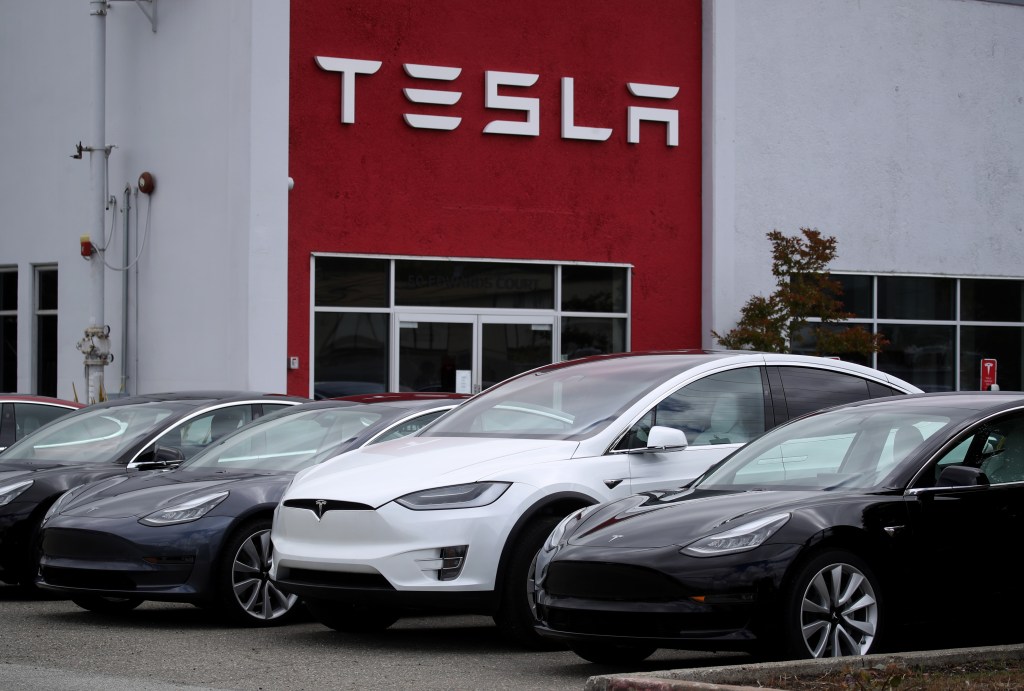Auto Dealers Push Back Against Mandatory EV Quotas

Table of Contents
Financial Burden of EV Infrastructure and Inventory
One of the most significant obstacles facing auto dealers is the substantial financial burden associated with transitioning to an EV-centric business model. The high upfront investment required for EV infrastructure represents a considerable hurdle, particularly for smaller dealerships with limited resources. This includes not only the purchase and installation of charging stations but also the ongoing maintenance and potential upgrades required to keep pace with technological advancements. The cost of specialized training for technicians to service and repair EVs adds another layer of financial strain.
- Expensive charging station installation and maintenance: Level 2 and DC fast chargers are expensive to install and require ongoing maintenance, increasing operational costs.
- Higher training costs for technicians specializing in EVs: EV mechanics require specialized training on high-voltage systems and battery technology, leading to increased labor costs.
- Risk of unsold EVs depreciating rapidly: Limited consumer demand in certain regions can result in excess EV inventory, leading to substantial financial losses due to depreciation.
- Need for significant capital investment in showroom redesign and specialized tools: Showrooms may need renovations to accommodate EV charging stations and specialized tools for EV maintenance.
Consumer Preferences and Market Readiness
Beyond the financial challenges faced by dealers, the current market reality presents significant obstacles to widespread EV adoption. Many consumers remain hesitant to embrace electric vehicles due to persistent concerns about range anxiety, limited charging infrastructure, and the generally higher purchase price compared to gasoline-powered vehicles. The current charging infrastructure is simply not robust enough in many areas to support the widespread adoption of EVs. This lack of readiness creates a significant barrier to market growth and contributes to dealer resistance to mandated quotas.
- Lack of public charging stations in rural areas: The scarcity of charging infrastructure outside of urban centers limits the practicality of EVs for many consumers.
- Long charging times compared to gasoline refueling: The time required to recharge an EV significantly exceeds the speed of refueling a gasoline car, impacting consumer convenience.
- Higher price point of EVs compared to gasoline-powered vehicles: The higher initial cost of EVs remains a significant deterrent for many potential buyers.
- Consumer concerns about battery life and replacement costs: Uncertainty surrounding battery lifespan and the expense of battery replacement create apprehension among prospective EV owners.
Challenges in Supply Chain and Production
The global supply chain continues to experience significant disruptions, directly impacting the availability of critical components for electric vehicles. This instability creates production bottlenecks and delays, causing frustration for both dealers and consumers. Manufacturers are struggling to keep pace with the growing demand, and this uncertainty makes it difficult for dealers to plan for inventory and meet sales targets, further fueling resistance to mandatory EV quotas.
- Shortages of critical battery materials: The production of EV batteries relies on various rare earth minerals, the supply of which is often unpredictable.
- Microchip shortages impacting production of EVs: The ongoing microchip shortage continues to constrain the production capacity of many EV manufacturers.
- Logistical challenges in transporting EVs and components: Global supply chain disruptions cause delays in the transportation of both vehicles and components, impacting production schedules.
- Increased manufacturing costs impacting vehicle pricing: Supply chain issues and material shortages increase manufacturing costs, which are ultimately passed on to consumers in the form of higher prices.
Government Support and Policy Implementation
Dealers argue that government support for the EV transition should be significantly more comprehensive, providing incentives for both consumers and dealers. Currently, many feel that the support is insufficient to offset the significant financial burdens and risks associated with embracing EVs. Clearer guidelines, regulations, and better communication from governmental bodies are necessary to navigate the complexities of this transition.
- Insufficient government subsidies for EV infrastructure development: The current level of government funding for EV charging infrastructure is inadequate to meet the demands of a rapidly growing EV market.
- Lack of clear guidelines and regulations for EV sales and servicing: Ambiguous regulations and a lack of clarity create uncertainty and hinder the smooth transition to EVs.
- Need for more comprehensive consumer education programs about EVs: Public awareness campaigns are needed to address consumer concerns and promote the benefits of EVs.
- Better coordination between government agencies and auto dealers: Improved communication and collaboration between government and dealers are essential to ensure a successful transition.
Conclusion
The pushback from auto dealers against mandatory EV quotas underscores the significant and multifaceted challenges involved in a rapid transition to electric vehicles. Successfully navigating this transition requires a holistic approach that addresses the financial burdens faced by dealers, acknowledges and responds to consumer preferences, stabilizes the supply chain, and provides robust government support. Ignoring these concerns will only exacerbate resistance to mandatory EV quotas and hinder the progress towards a sustainable automotive future. To learn more about the intricacies of this issue and explore potential solutions, continue researching the complexities of mandatory EV quotas and their impact on the automotive industry.

Featured Posts
-
 Swedens Tanks Finlands Troops A Pan Nordic Defense Force
Apr 22, 2025
Swedens Tanks Finlands Troops A Pan Nordic Defense Force
Apr 22, 2025 -
 Razer Blade 16 2025 Ultra Thin Laptop Performance And Price Analysis
Apr 22, 2025
Razer Blade 16 2025 Ultra Thin Laptop Performance And Price Analysis
Apr 22, 2025 -
 Across America Protests Against The Trump Administration
Apr 22, 2025
Across America Protests Against The Trump Administration
Apr 22, 2025 -
 Pope Francis Dead At 88 Following Pneumonia Battle
Apr 22, 2025
Pope Francis Dead At 88 Following Pneumonia Battle
Apr 22, 2025 -
 Google At A Crossroads Examining The Real Danger Of A Breakup
Apr 22, 2025
Google At A Crossroads Examining The Real Danger Of A Breakup
Apr 22, 2025
Latest Posts
-
 Edmonton Oilers Win 3 2 Over Vegas Golden Knights But Vegas Advances To Playoffs
May 10, 2025
Edmonton Oilers Win 3 2 Over Vegas Golden Knights But Vegas Advances To Playoffs
May 10, 2025 -
 Vegas Golden Nayts Pobeda Nad Minnesotoy V Overtayme Pley Off
May 10, 2025
Vegas Golden Nayts Pobeda Nad Minnesotoy V Overtayme Pley Off
May 10, 2025 -
 Vegas Golden Knights Hertl Absence Looms Large After Lightning Game
May 10, 2025
Vegas Golden Knights Hertl Absence Looms Large After Lightning Game
May 10, 2025 -
 Zolotye Rytsari Vegasa Oderzhivayut Pobedu Nad Minnesotoy V Overtayme Pley Off
May 10, 2025
Zolotye Rytsari Vegasa Oderzhivayut Pobedu Nad Minnesotoy V Overtayme Pley Off
May 10, 2025 -
 Hertls Injury Golden Knights Face Potential Absence Against Lightning
May 10, 2025
Hertls Injury Golden Knights Face Potential Absence Against Lightning
May 10, 2025
